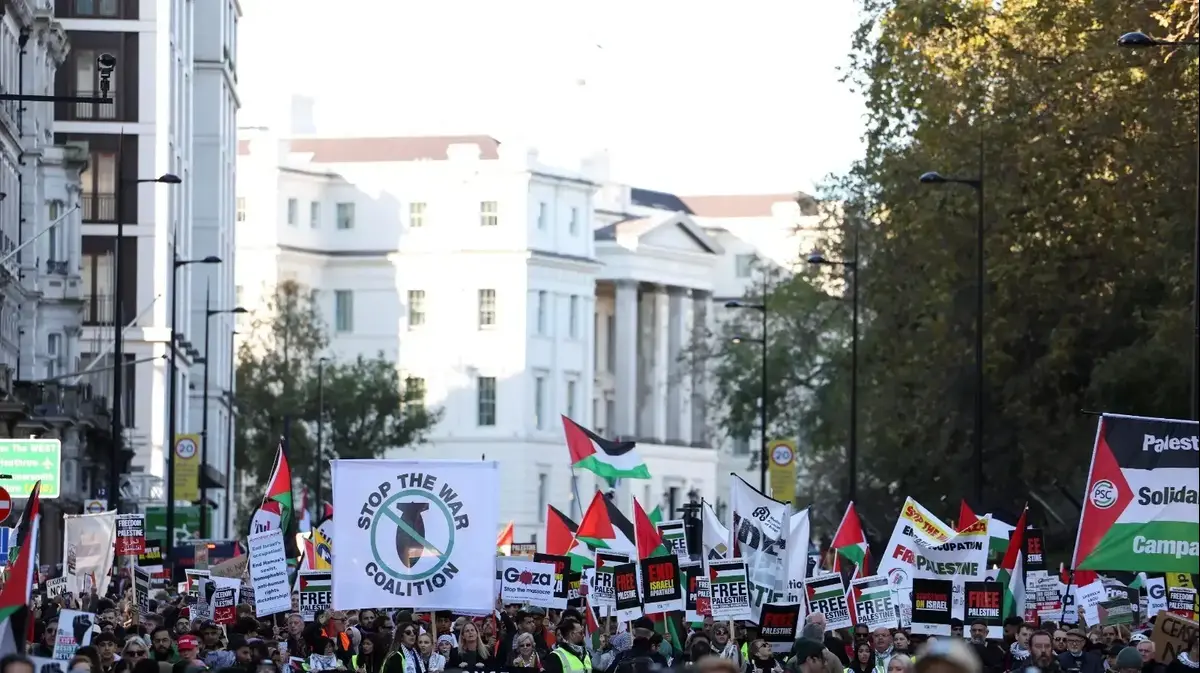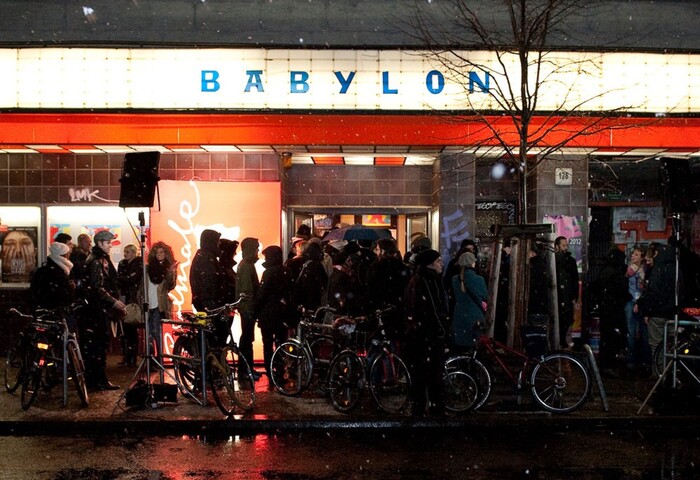65 years ago, in the summer of 1958, in the London neighborhood of Notting Hill there was a succession of attacks against people and businesses belonging to the West Indian, Asian and Caribbean migrant population.
What happened led to a wave of racism until then almost unknown in the United Kingdom.
In response to these attacks, the organization Stars Campaign for Interracial Friendship (SCIF, for its acronym in English) emerged.
His story is told in
Babylon Burns.
Music, subcultures and anti-fascism in Britain from 1958 to 2020
(Desacorde Ediciones, 2022), by musician and activist Rick Blackman.
SCIF involved jazz and folk musicians, as well as personalities from British film, journalism and literature.
In their manifesto they indicated that they had come together to spread "the ideals of tolerance and racial coexistence through the example of those who earn a living in the world of art, entertainment and journalism."
They organized meetings, vigils and interracial concerts.
It was the predecessor of two other similar experiences: Rock Against Racism (Rock against racism) and Love Music Hate Racism (Love music hate racism).
The three organizations at different times understood music as a space for social aggregation and identity in the face of racism and fascism.
More information
The fight against racism in music, protagonist of the start of the In-Edit
Twenty years later, SCIF's short experience was replicated by Rock Against Racism (RAR), which between 1978 and 1981 brought together musicians from all over the country in a campaign involving 273 bands, including totemic groups of that time like The Clash, Stiff Little Fingers, Exodus or The Specials.
His most important concert (“carnival” due to its format similar to the cultural manifestations of the Caribbean community) was the one held on April 30, 1978 in Victoria Park before nearly 100,000 people.
The movement reemerged in 2002 under the name Love Music Hate Racism and continues today.
“Rock Against Racism and Love Music Hate Racism are different organizations but have a common message,” Blackman, 59, explains by phone from his west London home.
In the 1970s the 'subcultures' of British youth were defined by their musical tastes and two were very clearly identified with this activist message: punk and reggae.
Now, however, explains Blackman, it is not only rock, but also electronic music, trap
,
rap or what a kid can do from his own room with a computer.
The styles have changed, but also the way of buying music and following the trends of the moment.
The author, with a thick London accent, points out synergies between the three anti-racist organisations: “What they want to do is talk about music and celebrate the multitude of ethnic influences and cultures that we have and also scare away those young people who might flirt or be interested in extreme right, prevent them from going down that path and I think nothing does it more powerfully than music”.
In that alliance between musicians and activists, diversity then and now was a sign of collective identity.
Cover of 'Babylon Burns.
Music, subcultures and anti-fascism in Great Britain from 1958 to 2020'.Desacorde Ediciones
Carol Grimes led her own soul and blues band on Rock Against the Racism's cross-country tours in the late 1970s, at festivals that could be held in a park, a neighborhood soccer field, or a pub that get along with the cause.
Grimes is now 78 years old and at the time she also belonged to the Anti-Nazi League, the organization that promoted RAR.
The singer compares her experience from then with the current moment: “We live in similar times.
Until humanity can learn from history we have to keep speaking out, acting wherever possible, for the good of the majority of people in the world."
And she adds through messages crossed by a social network: “I hope that inequality, intolerance and racism disappear.
I hope that the corporate bigwigs, the politicians,
despots and dictators disappear.
I hope they learn from the people of the world, everywhere, from the people who want to live in harmony, with love, with a fair wage for their work.
Idealistic?
Yes, because I still have hope.
In
Burning Babylon
the author does not hide his political ideas.
Blackman defines himself as a left-wing activist — "We make better music than the right," he says with a laugh — as well as an anti-racist militant.
The text is a book adaptation of his doctoral thesis.
Regarding the current British Prime Minister Rishi Sunak, who belongs to a family of Indian origin, he points out: “One of the objectives of the Anti-Nazi League, Rock Against Racism and Love Music Hate Racism was to press for representation and equal treatment in life public.
Somehow that has been achieved and what we can see in both this administration and the last one was a representation of black and Asian people that we had not seen before.
However, it is a bit paradoxical,
Blackman, who is going to visit Madrid and Barcelona to present the book in March, points out another of the book's focuses: the power of music.
“Hitler hated jazz and banned it, the collaborationist Vichy government in France banned Django Reinhardt.
The extreme right seeks to control everything: the media, unions, civil liberties, literature... And they do the same with music if it doesn't fit into their very narrow idea of white supremacy or religious intolerance.
But ultimately what they hate the most is the idea of young people, whatever their ethnicity, dancing together because that union threatens their politics."
And he adds emphatically: "I mean, music can't stop fascism by itself,
but it can certainly create a much broader net to catch anti-racist and anti-fascist people who want to see fascism off the streets.”
Precisely his book gives some ideas on how to achieve it through music.
Subscribe to continue reading
Read without limits
Keep reading
I'm already a subscriber

/cloudfront-eu-central-1.images.arcpublishing.com/prisa/J4HAY4JNJNCBTLEEQC7R6JYUAE.png)







